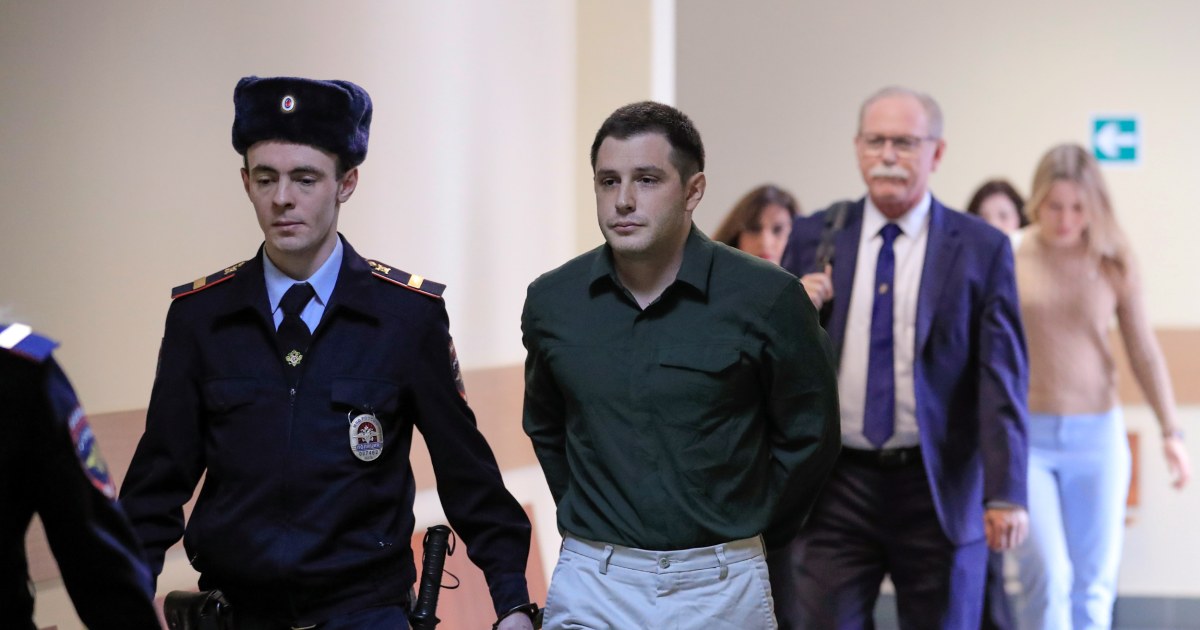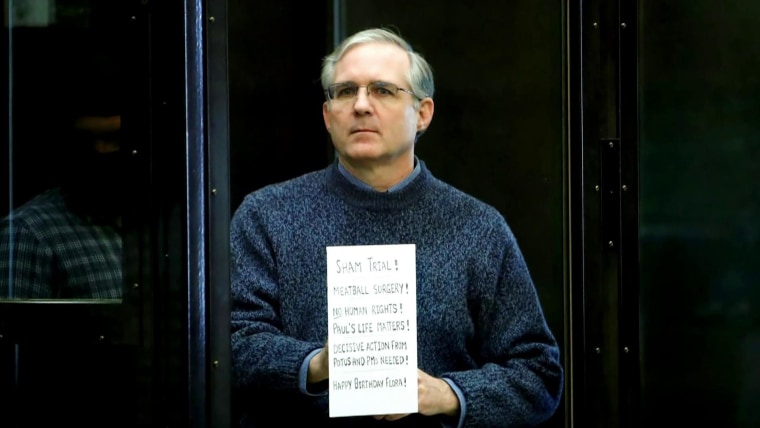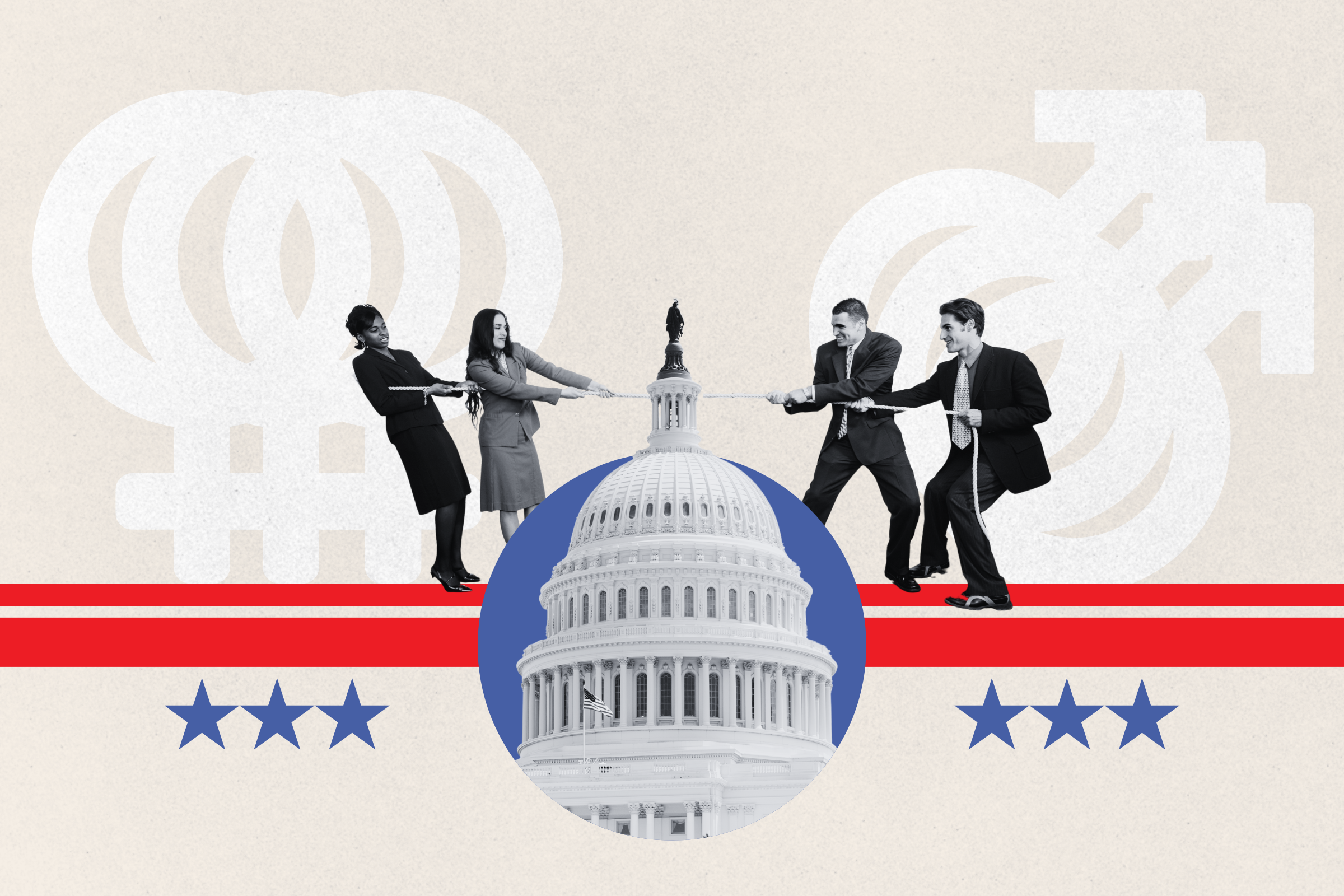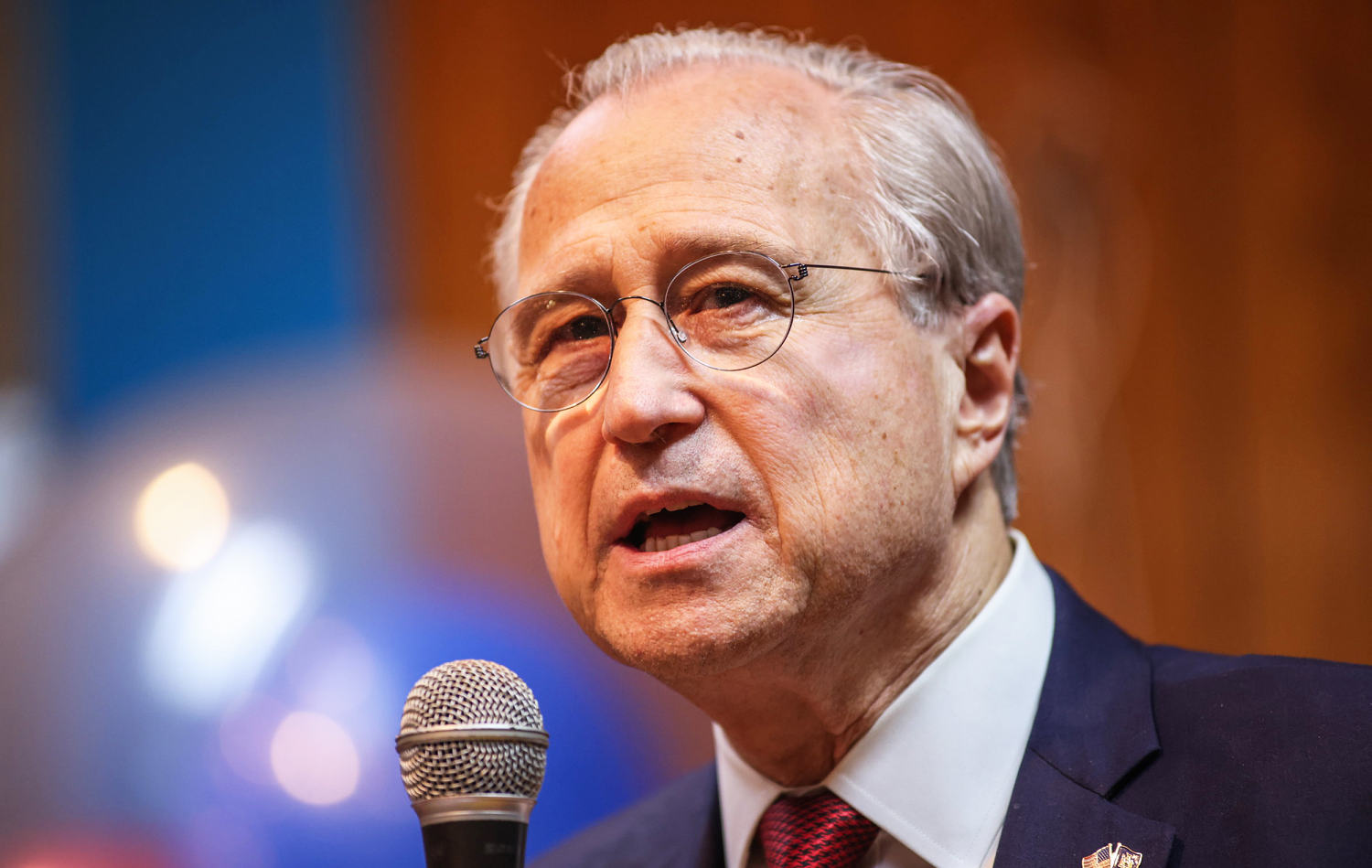MOSCOW — A Russian court ruled Thursday against a 29-year-old former U.S. Marine who was detained last year on charges of assaulting a police officer after a night of heavy drinking in Moscow, sentencing him to nine years in a Russian prison.
Trevor Reed’s nine-year sentence is close to the maximum punishment for these charges, which is 10 years. He has already been in Russian custody awaiting trial for almost a year. Prosecutors on Wednesday asked for 9 years and 8 months.
The defendant, his family and his Russian girlfriend all deny the charges. The U.S. ambassador to Russia has called the evidence flimsy. And all of them have alleged that he has become just the latest example of American citizens being unfairly charged in Russia.
Ambassador John Sullivan told NBC News that Americans detained in Russia receiving unfair treatment from the judicial system is becoming a more frequent problem — a stark warning for Americans considering visiting or doing business in Russia.
“This is not a good story for U.S.-Russia relations,” Sullivan said in a telephone interview shortly after the verdict was issued. “And it is not good for encouraging U.S. private citizens and business to visit and invest here if what they did to [Reed] can be done to anyone.”
During closing arguments on Wednesday, Reed said he would not admit guilt to a crime he didn’t commit.
“I think it would be unethical and immoral to plead guilty to a crime I didn’t commit,” he said in his closing statement on the eve of the trial’s verdict. “If I am going to be given a prison sentence, I’d rather stay in prison than walk free tomorrow a liar and a coward.”
Sullivan said that the evidence against Reed strained credulity.
Let our news meet your inbox. The news and stories that matters, delivered weekday mornings.
“The evidence was so flimsy and preposterous that everyone in the courtroom, even the judge, laughed when it was presented,” Sullivan said. “If this case had been brought in a U.S. court, not only would it have been thrown out, but the prosecutors would be investigated for bringing it forward in the first place.”
Other cases, such as that of another former U.S. Marine, Paul Whelan, have garnered much more political and media attention, likely due to the nature of the charges against Whelan — espionage — and the open discussion of using him as a bargaining chip with the United States.
But Reed’s father, Joey, has spent the past year in Moscow advocating for his son in an effort to keep his case from falling below the radar. Russian courts have an extremely high conviction rate, and acquittals are increasingly rare.
“I am nervous and anxious,” Reed’s mother, Paula, told NBC News in a telephone interview Tuesday. “Of course, I’ve tried to prepare for the worst, but if you really think about it too hard … I’m probably not prepared. You just feel hopeless and they’re going to do what they’re going to do.”
The embassy sent representatives to each of Reed’s court hearings, but generally adopted a more restrained public posture toward the trial than it did with the Whelan case — which saw Sullivan frequently take strongly worded public stands against the proceedings.
Sullivan told NBC News that part of the reason was that he hoped this might prevent Reed’s case from being overly politicized.
“I have not been making public statements the way I have about other cases just because I was in effect giving the Russian judicial system an opportunity to do justice by Reed,” he said.
Reed, a Texas native, spent the summer of 2019 in Moscow studying Russian and visiting his girlfriend — a lawyer in Moscow — and was preparing to return home last August, his family says. But just days before his return, he celebrated a night out with his friends and his girlfriend’s co-workers.
Alina Tsybulnik, Reed’s girlfriend, said in an interview that he became ill while a colleague drove the two of them home. The driver stopped the car, Reed and Tsybulnik got out, and then the driver called the police when it was clear that Reed was in a bad state.
“It wasn’t my idea to call the police,” Tsybulnik said. “It was my colleague who did it. She had never met Trevor before and didn’t want to deal with it. He was in trouble, his lips were blue and he needed medical help and he wasn’t answering me, he didn’t know where he was.”
When the police arrived, they put Reed in the back of their car and then drove him to a police station, Tsybulnik said. According to the police, Reed became belligerent during the ride and tugged on the driver’s arm — making the car swerve.
He’s been accused of endangering the police officers’ lives, while also elbowing one in the passenger’s seat. Tsybulnik says the police have presented a jacket with a torn arm to the court in an effort to demonstrate that he tugged on the driver.
She says that is simply not possible.
“We followed the car and it was driving pretty slow, it wasn’t swerving,” she said. “[Reed] was asleep in the back of the car. That is why they didn’t handcuff him.”
Reed, meanwhile, has said in previous interviews that he has no recollection of the events — a claim his family reaffirmed to NBC News.
Joey Reed, a Texas firefighter, has deeply familiarized himself with the evidence against his son while renting an apartment in Moscow — braving out even the COVID-19 lockdown that brought life in the Russian capital to a halt in April and May, he said.
“I told him he needs to be father of the year,” Paula Reed said of her husband’s efforts.





















